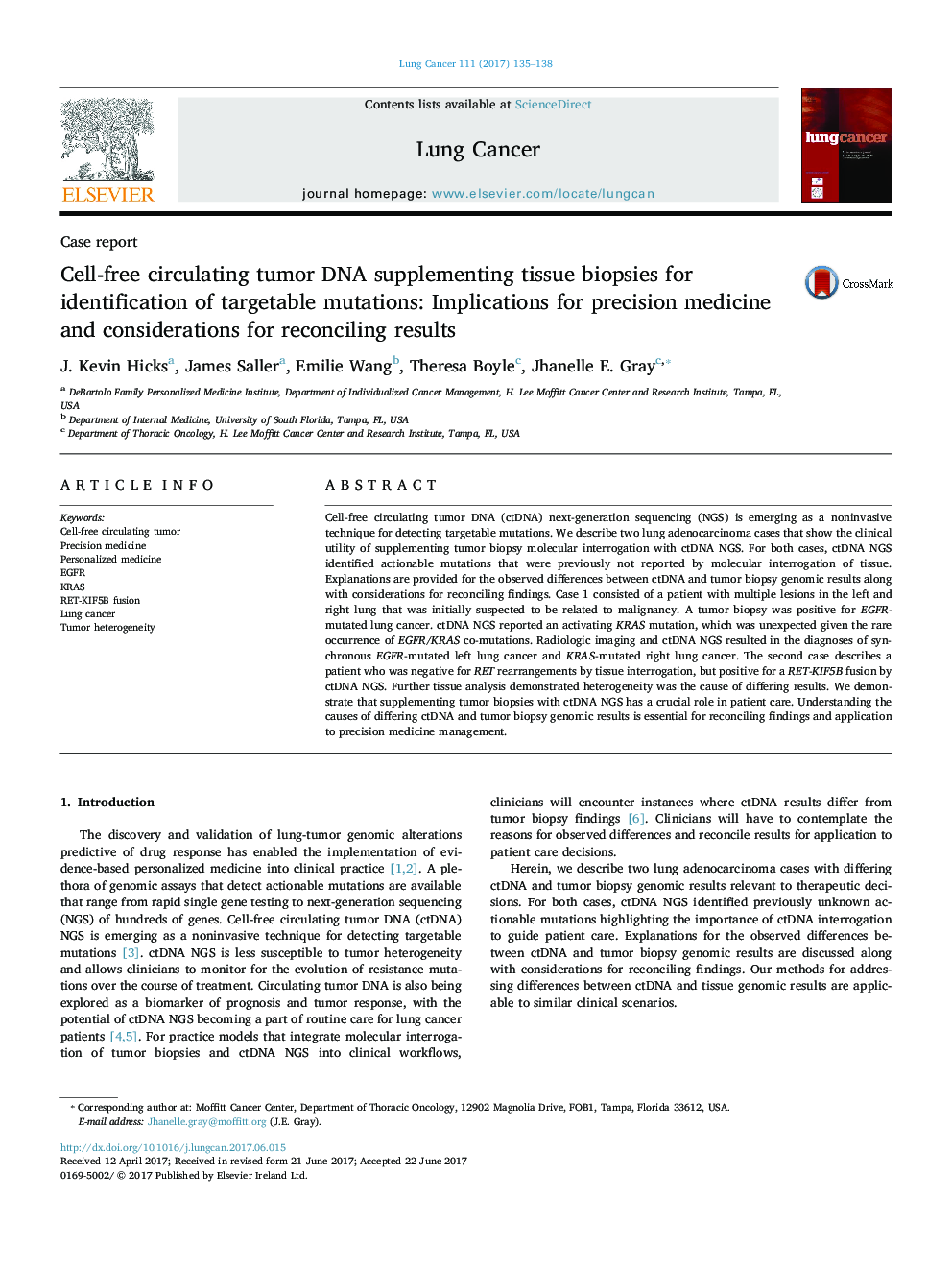| کد مقاله | کد نشریه | سال انتشار | مقاله انگلیسی | نسخه تمام متن |
|---|---|---|---|---|
| 5528347 | 1547956 | 2017 | 4 صفحه PDF | دانلود رایگان |
- Patients may undergo molecular tumor interrogation by multiple testing platforms.
- Treatment dilemmas may arise due to the observance of discordant molecular results.
- Allele frequencies, tumor DNA source, and further tests may resolve observed differences.
Cell-free circulating tumor DNA (ctDNA) next-generation sequencing (NGS) is emerging as a noninvasive technique for detecting targetable mutations. We describe two lung adenocarcinoma cases that show the clinical utility of supplementing tumor biopsy molecular interrogation with ctDNA NGS. For both cases, ctDNA NGS identified actionable mutations that were previously not reported by molecular interrogation of tissue. Explanations are provided for the observed differences between ctDNA and tumor biopsy genomic results along with considerations for reconciling findings. Case 1 consisted of a patient with multiple lesions in the left and right lung that was initially suspected to be related to malignancy. A tumor biopsy was positive for EGFR-mutated lung cancer. ctDNA NGS reported an activating KRAS mutation, which was unexpected given the rare occurrence of EGFR/KRAS co-mutations. Radiologic imaging and ctDNA NGS resulted in the diagnoses of synchronous EGFR-mutated left lung cancer and KRAS-mutated right lung cancer. The second case describes a patient who was negative for RET rearrangements by tissue interrogation, but positive for a RET-KIF5B fusion by ctDNA NGS. Further tissue analysis demonstrated heterogeneity was the cause of differing results. We demonstrate that supplementing tumor biopsies with ctDNA NGS has a crucial role in patient care. Understanding the causes of differing ctDNA and tumor biopsy genomic results is essential for reconciling findings and application to precision medicine management.
Journal: Lung Cancer - Volume 111, September 2017, Pages 135-138
